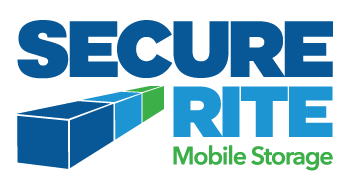
Sustainability in Business
Over the past ten years sustainability has emerged as a buzz word which is often associated with environmentalism and green initiatives; however, the term is actually much more diverse and has different connotations across businesses, individuals and cultures. For true sustainability to exist, regardless of the context, it must encompass three pillars – the environment, economy and society.
In one of the most commonly referenced definitions, “sustainability is meeting our own needs without compromising the ability of future generations to meet their own needs.”
This means ensuring that ecological systems are not being consumed at a rate faster than they can regenerate and that economic systems are healthy and intact so that people have access to secure sources of income. It also acknowledges the protection of universal human rights and seeks to ensure that people have access to basic necessities.
By addressing this multi-dimensional model, business owners and global companies are realizing the need to incorporate broader standards of sustainability into their practices and decision-making.
In 2018 Bain and Company surveyed 297 global companies. 81% said sustainability is more important to their business today than it was five years ago, and 85% believe that it will be even more important in five years.
Companies are not prioritizing social, environmental and economic responsibility just because it’s the right thing to do, but because it’s smart business.
In 2016, 190 Fortune 500 companies saved $3.7 billion for emission-reduction projects due to a combination of lower energy costs and improved operational efficiency. A 2017 study conducted by Cone Communications also found that that 88% of consumers will be more loyal to a company that supports social or environmental issues. Developing practical, sustainable standards is proving to be profitable for small and large-scale companies alike.
There are several sustainable strategies that can be considered and applied across industries which can increase efficiency and provide internal and external value.
- Look for efficiencies in the supply chain that are both environmentally friendly and cost-effective. Buying stock from local sources can help cut emissions and save on transportation costs.
- Partner with organizations that have a similar mission. Aligning goals, can help drive progress fast, plus enhance credibility.
- Invest in energy efficient equipment like ‘green’ appliances, repurposed or recycled materials, and LED lighting.
- Support businesses that are socially and environmentally responsible. Source out sustainable businesses in your community and support them with your purchasing power.
- Report on environmental and social practice. Transparency is an important step in winning consumer trust and enhancing accountability. It may also inspire others to take action.
- Reduce waste and repurpose items whenever possible. The best way to keep items out of landfills is by using items that can be recycled or repurposed when you no longer need them.
Some local examples of sustainable businesses include Wishbone Site Furnishings, who manufacture municipal grade furniture from recycled plastic. They have kept an astonishing 3,532,662lbs of plastic out of Canadian landfills since 2008. Another example is The City of Kelowna’s proprietary compost and soil supplement – OgoGrow. This product is made by combining biosolids, wood ash and a by-product from lumber mills called hog fuel.
Another local company, Secure-Rite, practices sustainability by repurposing shipping containers for mobile storage as well as for building custom and relocatable structures. Their units are built from Corten Steel which can be recycled an infinite amount of times, feature LED lighting and can be customised for off-grid use. Secure-Rite offers two types of containers for rent, sale, lease or customization. One-trip containers have been used to transport goods one time and are considered new. Used containers have been used as cargo containers for several years. Both variations are upcycled which has kept thousands of containers out of landfills in the 14 years Secure-Rite has been in business.
In addition to their products, Secure-Rite supports its local communities by offering services, products, time and funds to a range of local and global initiatives. They were honoured to receive the 2018 City of Kelowna’s Corporate Community of the Year award as well as receive nomination for the 2019 Kelowna Chamber Business Excellence - Social Leadership award.
When companies incorporate sustainable practices within their operations, products and services it encourages other companies to operate within similar guidelines. It also encourages consumers to remain vigilant in keeping companies accountable for their actions and helps ensure environmental, societal and economic stability for future generations.
Secure-Rite specializes in mobile storage, building solutions and custom design, utilizing one of the most durable structures in the world – shipping containers. We provide Western Canada with weatherproof and watertight sea cans for residential, industrial and commercial use. Whatever the need, Secure-Rite can provide simple, secure and smart solutions.

